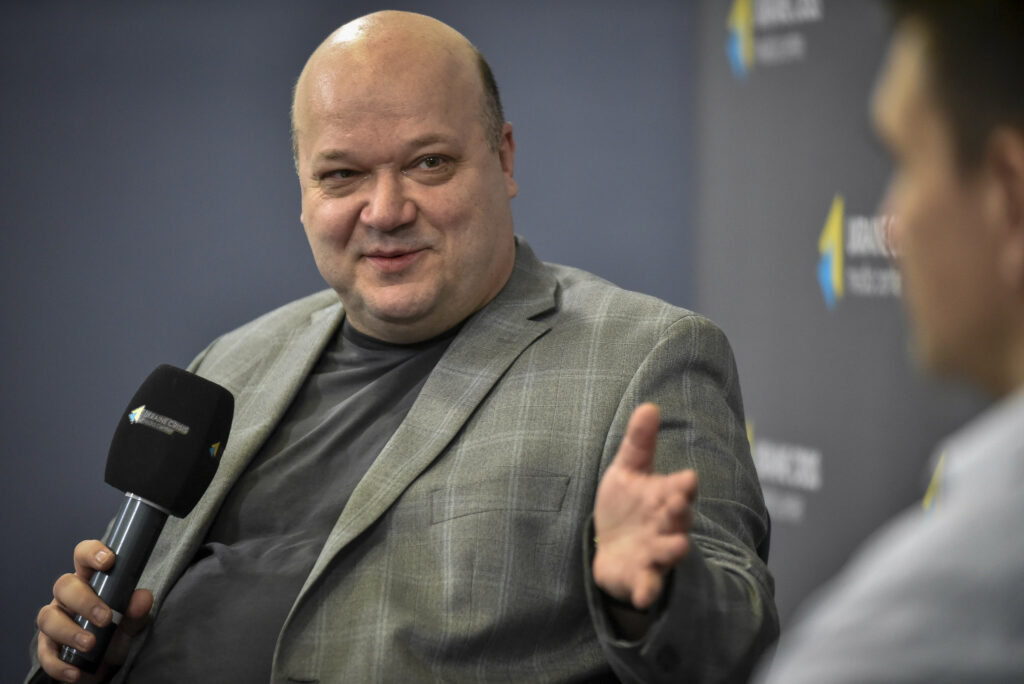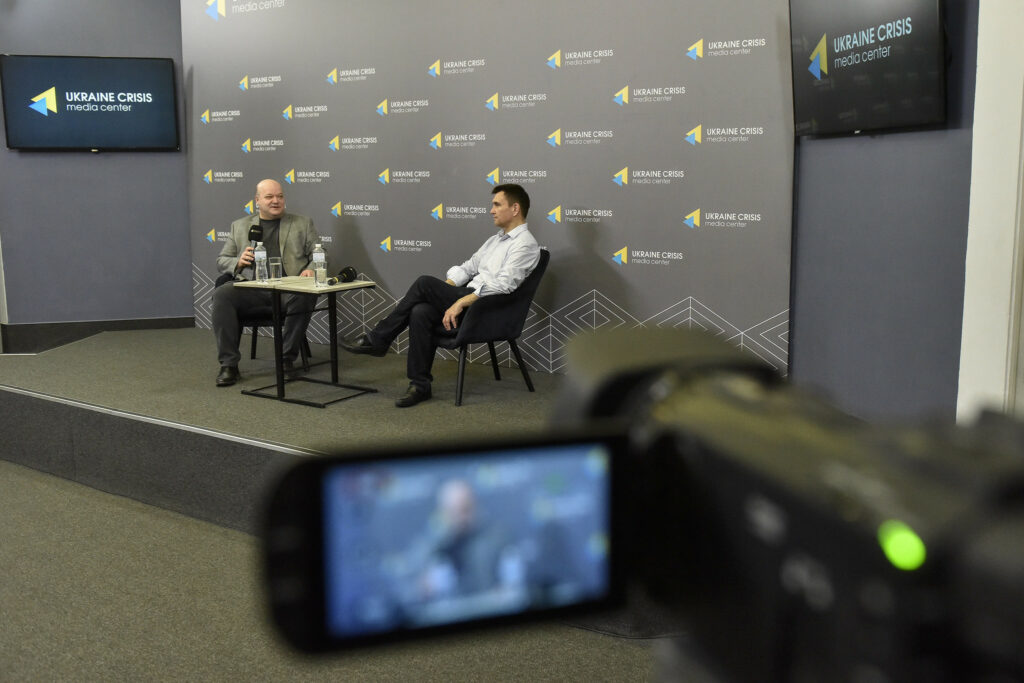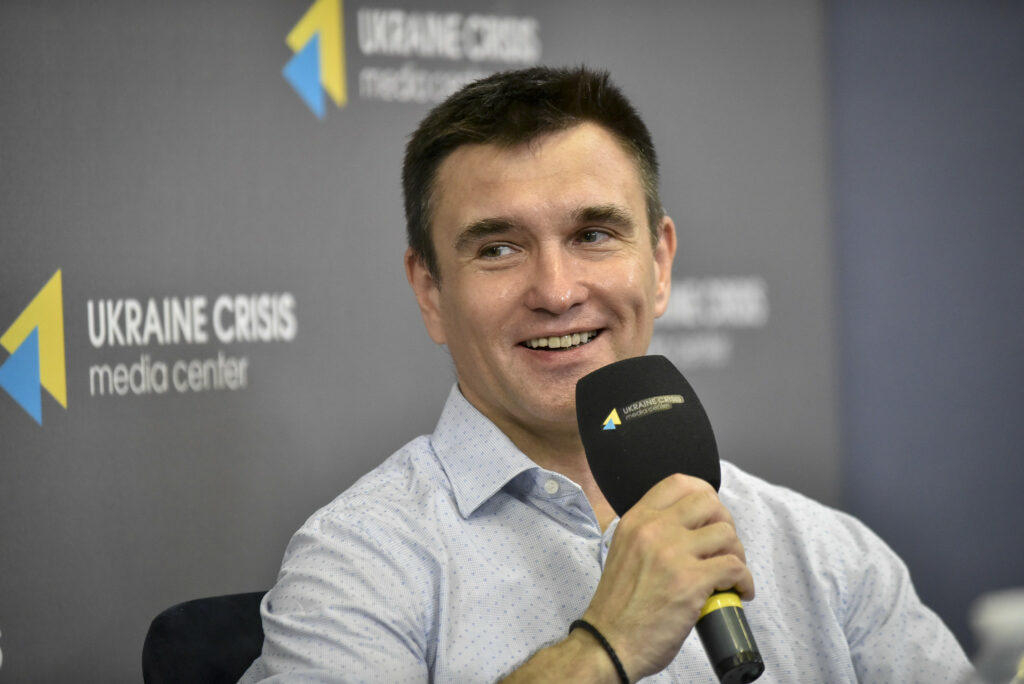Geopolitical Dialogues is a format that brings together top-level experts to discuss issues that are of interest not only to Ukrainians. This time, Valeriy Chaly, Chairman of the Board of Ukraine Crisis Media Center, Ambassador Extraordinary and Plenipotentiary and Pavlo Klimkin, Senior Fellow at the Carnegie Endowment for International Peace, Minister of Foreign Affairs of Ukraine in 2014-2019, spoke on many topics. However, the main focus was the security track, and above all the situation around Ukraine.
“What can we call the situation in geopolitics? Is it already World War III? Is it a regional war? Where are we now, and in view of these 10 years, do we understand what the enemy wants?” Valeriy Chaly began the conversation with this question.
His interlocutor believes that the status quo that developed after World War II is formally preserved, but it does not function, and won’t function in the foreseeable future. This means that at some point, which no one understands yet, this world will be different. It will work on other principles. The West is moving towards implementing the idea of multi-polarity. No one understands what it is, but let us live as we want based on a minimum of rules.
The motivation of today’s Russian regime is quite clear. It wants to remain a key global power. Maybe at some point there will be others who will see the world and Russia differently, but not the current one.
“The whole world, both Western and non-Western, sees Russia as a reality that is gradually declining. They even coined a term for this: decline in Power, but this decline is dangerous for many. Anyone who realizes that it is declining and wants to return to some reality that they drew somewhere in their subconscious, acts rationally, but in a different way than we do. The rationality that exists in Moscow and the Kremlin differs from classical rationality,” Pavlo Klimkin said. In his opinion, the world has no consensus or a common opinion on what to do with this Russia, how to deter it, how to make it less safe in this environment.
“I’m absolutely clear-headed in assessing our management system, for example, and believe that it is still weaker than Russia’s. Unfortunately, this also affects the situation in the war. But I think we went further than them in assessing the historical and cultural situation. They always boasted that they were the first. Now I have the impression that what is happening in Ukraine is a revolutionary change that is now ahead of Russia,” said the head of the UCMC board.
The former Foreign Minister agreed with this vision.
“Over these years we have really understood the importance and meaning of identity, got a touch of world culture and world heritage, which we did not have in the Soviet Union. We were able to open our eyes to many things. We paid a huge price for the chance to get rid of this barrier. At some point we realized the cost of this reset and this process is not over. As for Russia, it must have some ideology that unites it. Otherwise, the processes that will be inside can become unpredictable. This means that they will continue to cement this ideology and try to say that there is a separate civilization. It is neither European nor Asian, it is unique. And in order to build the ideology of this civilization, they have to destroy Ukraine. It is not a territorial story, not about the seizure of some territories, although this is also true,” Pavlo Klimkin explained.
Valeriy Chaly shared his impression that there is no other way to protect from that territory but to build some kind of barrier.
“We must close ourselves for decades. We must take a break to develop. There is no invitation to NATO, and it’s a big question how NATO would work in this situation. Neutral status? Is it a price? Now there are these security agreements. It is clear that these are not guarantees, but still some kind of track. There are other models. Which one do we need, and which one is the most realistic?” he asked.
Pavlo Klimkin admitted that he does not believe in any neutrality.
“This is not an option for Ukraine. I strongly believe in our membership in the European Union and NATO, but this does not mean that when we enter there, we will be able to relax. There will always be a threat to us, and therefore a critical deterrent capacity will always be needed. We understand that the 21st century differs from the 20th. Back then, a nuclear weapon served as a deterrent. No one can say yet whether it will be biology, artificial intelligence, or some combination, but we must work on it. We need systems that will be able to move us forward technologically,” stressed a Senior Fellow at the Carnegie Endowment for International Peace.
The NATO concept is changing to the concept of prevention, continued Valeriy Chaly. In this concept, the bloc places its troops on the territory of the eastern members. The German brigade began deployment in Lithuania. Poland wants the Americans to deploy tactical nuclear weapons on its territory. Other countries, not waiting for the development of artificial intelligence, deploy conventional troops – tanks, infantry and weapons: “We are not in this concept yet. What do you think about the fact that even before becoming a NATO member, Ukraine will more actively develop training programs on its territory? And what about a joint participation in the production of weapons?”
The former Foreign Minister is not sure this is realistic this year, but he believes that eventually there will be our partners’ conventional presence in Ukraine.
“Most likely, an agreement will be reached that nuclear weapons will not be placed on our territory. That is, an agreement on conventional rather than nuclear presence. And such a model should work, because it is the only model that actually provides a minimum perception of security inside and outside of Ukraine, creating an understandable security reality, Pavlo Klimkin predicted. – I see that the mentality in Europe is maturing to this. Right now, Europe cannot afford a security swing. In general, I believe that Europe will come to a common security umbrella through a series of crises, and it will be not only a nuclear umbrella. So far, neither solidarity nor political will is enough for this. However, the right-wing wave on the continent will only contribute to this, because people who have significant positions among the rightist forces are very concerned about the European identity and the defense of Europe, as they understand it. They want a stronger Europe.”





